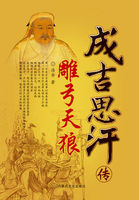There had been, in fact, no intermarriage among its members beyond what was natural in a small and isolated community, but the phrase had a certain appositeness.They were closely linked by loyalty to Church and King, by enmity to republics and republicans, by the memory of the sacrifice and peril they or their fathers had shared, and by the conviction that the province owed them the best living it could bestow.This living they succeeded in collecting."The bench, the magistracy, the high officials of the established church, and a great part of the legal profession," declared Lord Durham in 1839, "are filled by the adherents of this party; by grant or purchase they have acquired nearly the whole of the waste lands of the province;they are all powerful in the chartered banks, and till lately shared among themselves almost exclusively all offices of trust and profit." Fortunately the last absurdity of creating Dukes of Toronto and Barons of Niagara Falls was never carried through, or rather was postponed a full century; but this touch was scarcely needed to give the clique its cachet.The ten-year governorship of Sir Peregrine Maitland (1818-28), a most punctilious person, gave the finishing touches to this backwoods aristocracy.
The great majority of the group, men of the Scott and Boulton, Sherwood and Hagerman and Allan MacNab types, had nothing but their prejudices to distinguish them, but two of their number were of outstanding capacity.John Beverley Robinson, Attorney General from 1819 to 1829 and thereafter for over thirty years Chief Justice, was a true aristocrat, distrustful of the rabble, but as honest and highminded as he was able, seeking his country's gain, as he saw it, not his own.A more rugged and domineering character, equally certain of his right to rule and less squeamish about the means, was John Strachan, afterwards Bishop of Toronto.Educated a Presbyterian, he had come to Canada from Aberdeen as a dominie but had remained as an Anglican clergyman in a capacity promising more advancement.His abounding vigor and persistence soon made him the dominant force in the Church, and with a convert's zeal he labored to give it exclusive place and power.The opposition to the Family Compact was of a more motley hue, as is the way with oppositions.Opposition became potential when new settlers poured into the province from the United States or overseas, marked out from their Loyalist forerunners not merely by differences of political background and experience but by differences in religion.The Church of England had been dominant among the Loyalists; but the newcomers were chiefly Methodist and Presbyterian.Opposition became actual with the rise of concrete and acute grievances and with the appearance of leaders who voiced the growing discontent.
The political exclusiveness of the Family Compact did not rouse resentment half as deep as did.their religious, or at least denominational, pretensions.The refusal of the Compact to permit Methodist ministers to perform the marriage ceremony was not soon forgotten.There were scores of settlements where no clergyman of the Established Church of England or of Scotland resided, and marriages here had been of necessity performed by other ministers.A bill passed the Assembly in 1824 legalizing such marriages in the past and giving the required authority for the future; and when it was rejected by the Legislative Council, resentment flamed high.An attempt of Strachan to indict the loyalty of practically all but the Anglican clergy intensified this feeling; and the critics went on to call in question the claims of his Church to establishment and landed endowment.
The land question was the most serious that faced the province.
The administration of those in power was condemned on three distinct counts.The granting of land to individuals had been lavish; it had been lax; and it had been marked by gross favoritism.By 1824, when the population was only 150,000, some 11,000,000 acres had been granted; ninety years later, when the population was 2,700,000, the total amount of improved land was only 13,000,000 acres.Moreover the attempt to use vast areas of the Crown Lands to endow solely the Anglican Church roused bitter jealousies.Yet even these grievances paled in actual hardship beside the results of holding the vast waste areas unimproved.















